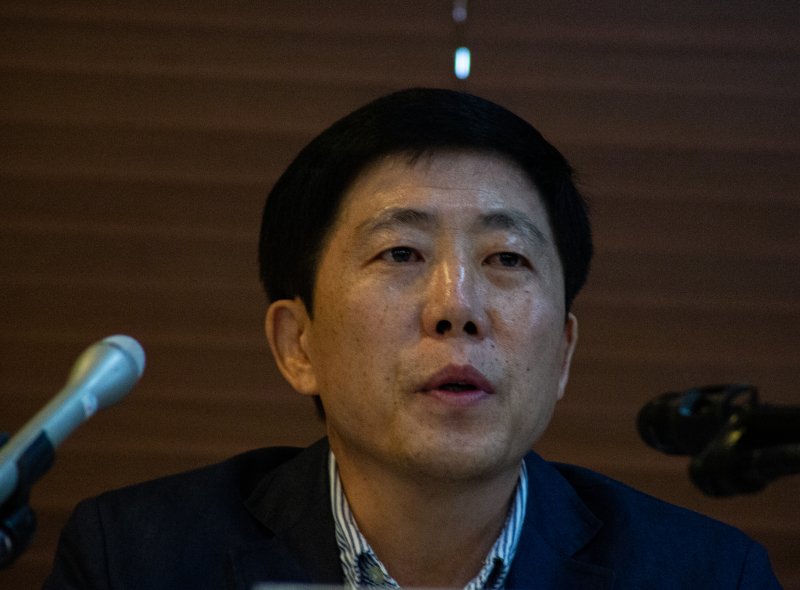U.N. Special Rapporteur Tomás Ojea Quintana said Friday activists like North Korean defector Park Sang-hak are being unfairly targeted for his activism in South Korea. File Photo by Jeon Heon-kyun/EPA-EFE
NEW YORK, Aug. 28 (UPI) -- A recent South Korean government decision to audit North Korean defector-led human rights groups has led to the increased stigmatization of activists, the United Nations said Friday.
The policy also undermines international efforts to address rights abuses, the organization's top official on North Korea human rights says.
U.N. Special Rapporteur Tomás Ojea Quintana said Friday during an online discussion hosted by the Committee for Human Rights in North Korea that Seoul's decision to inspect the non-government organizations created "negative perceptions" among South Koreans of the activists, who play an important role in delivering information into and out of the Kim Jong Un regime.
"I am very concerned about the targeting of these defector organizations," Quintana said. "The question is, why only these organizations suddenly become subject to this review, and why now?"
The activists, who had for years been permitted to send anti-Pyongyang leaflets by balloon, were abruptly the target of bans and accusations of disturbing South Korean residents at the border. Seoul also threatened to revoke their operating licenses.
Those actions came after North Korean official Kim Yo Jong condemned defectors such as Park Sang-hak as "traitors," and "human trash."
Quintana said he felt disappointment when Kim came out with the public statement, an "offensive against the defectors." Kim played a key role when she attended the 2018 Pyeongchang Winter Olympics, the U.N. official said.
Since July the defectors have been able to draw some support from South Korean courts. Courts agreed this month to temporarily block a government order to revoke the operating licenses of Keunsaem and Fighters for a Free North Korea amid international criticism, including from Quintana.
On Aug. 18, the fifth division of the Seoul Administration Court said in its opinion the "tangible and intangible damages will not be insubstantial" to Fighters for a Free North Korea if their license is revoked. The unification ministry said it would honor the court decision until the government pursues its "main case" against the groups at an unspecified time in the future.
Diminished concern for human rights
South Korea's support for North Korea human rights may have been eroding even before the recent series of events that culminated in the curbing of the freedom of expression. Japan has been absent from key human rights decisions as well, Quintana said.
Last November, Seoul opted out of co-sponsoring a resolution on North Korea human rights during a vote at the U.N. General Assembly, citing "circumstances on the Korean Peninsula." Japan also agreed in 2019 to not put forward to the United Nations a joint resolution condemning Pyongyang's rights abuses for the first time since 2008.
"That was a mistake," Quintana said, referring to the North Korea policies of Tokyo and Seoul.
Widespread and systematic human rights abuses continue in North Korea, including a discriminatory caste-like system that criminalizes descendants of North Koreans deemed less loyal to the state, according to Quintana.
Access to the regime is also becoming increasingly difficult amid COVID-19.
North Korea has become more isolated since the pandemic, and there is evidence the country has closed foreign embassies. U.N. staff on the ground has also been reduced.
"The whole operation of the international community inside North Korea has been completely blocked," Quintana said.
The closure of North Korea's borders has made it more difficult to understand how the country is coping with the coronavirus. North Korean officials may have been giving international aid workers the impression there has not been a major outbreak.
"We know COVID-19 is providing new impetus for Pyongyang to exert authority over the local economy, especially the 'Jangmadang,'" Quintana said, referring to North Korean informal marketplaces.
"We should try to avoid the further isolation of the country, which is what the [North Korean] government is moving toward. It is not the answer."















